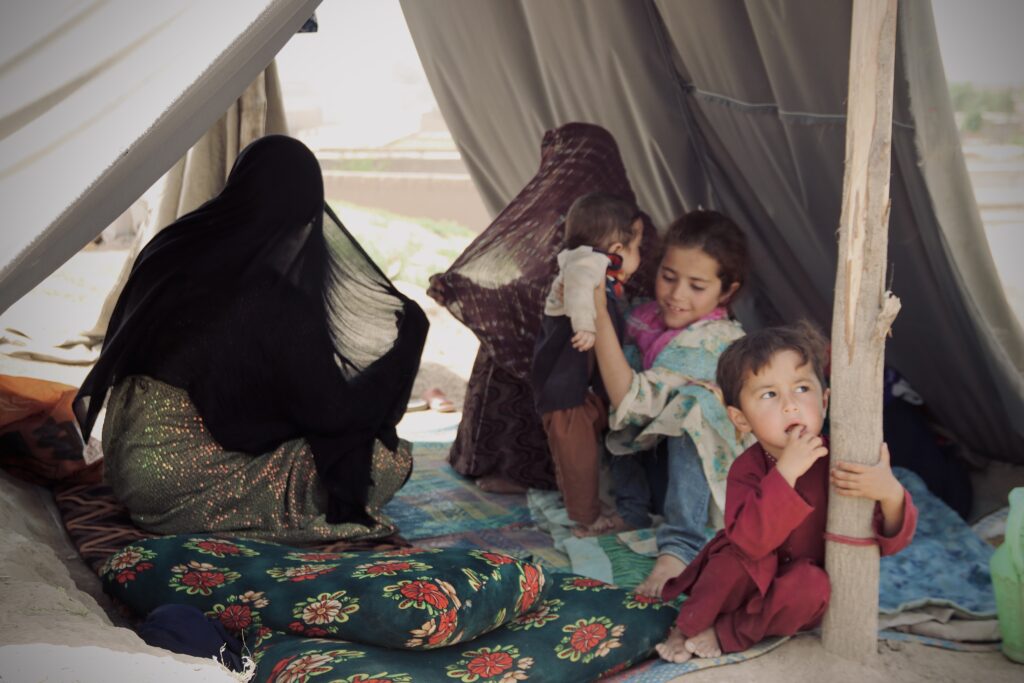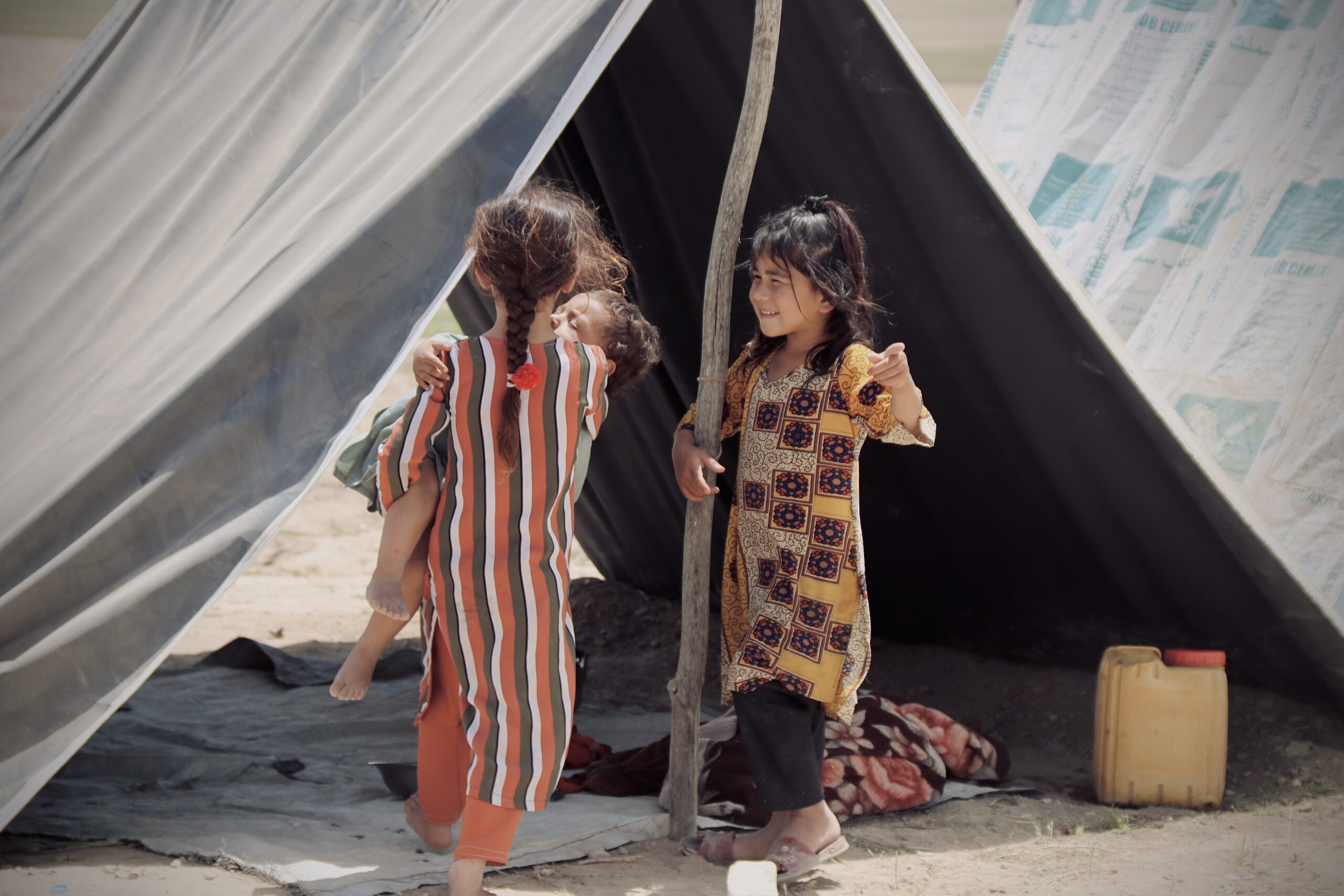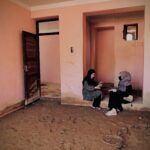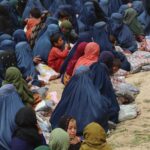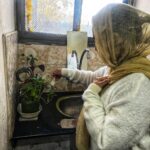Saeedullah, 12 years old, was seated on the ground of his destroyed house in Baghlan province, northern Afghanistan, his sorrowful expression conveying deep sadness.
“I lost everything – my mother, home, uncle, and friends,”
Saeedullah’s mother, uncle, and relatives died, and he lost his home in the recent floods in Baghlan.
Multiple provinces in Afghanistan have declared a state of emergency over the past three weeks as flash floods tear through the country’s valleys. Earlier this month, the United Nations’ World Food Program estimated that flash floods had killed over 300 and left many more injured as of May 11. At least 50 more people were killed in new flooding this past weekend.
Survivors, significantly displaced children, face numerous challenges. Many of them are living in makeshift tents.
Saeedullah said that several children of the same age in the village had lost their lives in the flood. Those who survived, like him, are now homeless.
“The walls of my school have collapsed, and there is nothing good left in our village,” said Saeedullah.
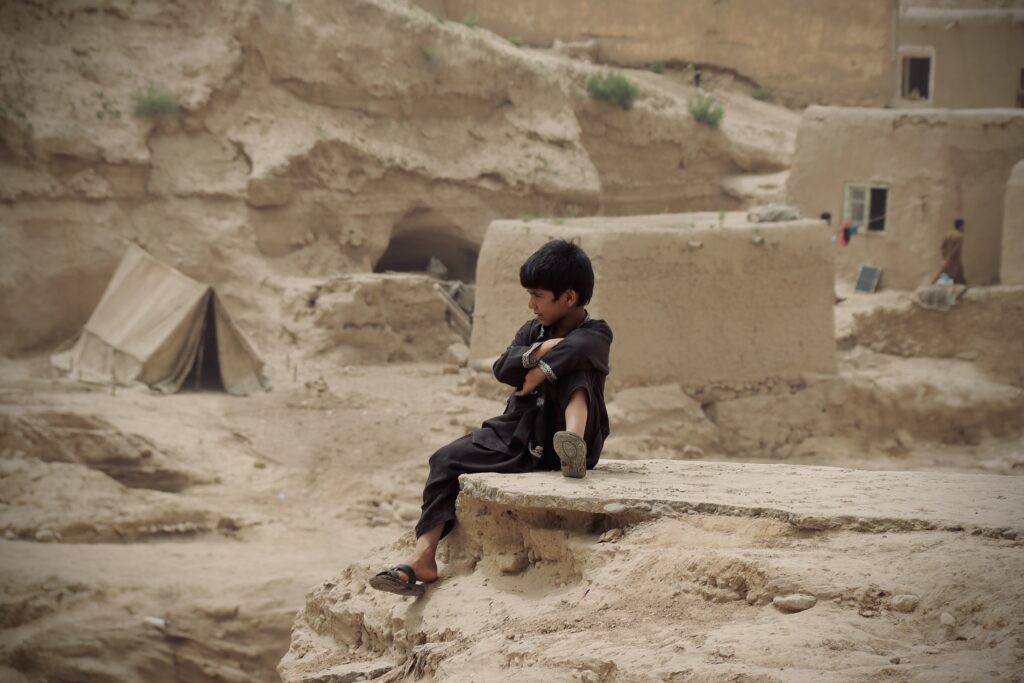
Save the Children reported that approximately 40,000 children in Baghlan province have been left homeless following recent floods.
“Children are scared. Many have lost everything – not only their homes but their schools and the places where they play. They have lost everything familiar. They have lost all routine.” Said Arshad Malik, Country Director for Save the Children in Afghanistan.
Baghlan is the most severely affected area, where the provincial Taliban authorities say more than 12,000 houses have been damaged or destroyed, impacting an estimated 80,000 people – at least half of whom are children.
Eight-year-old Fatima, her mother, and sisters had to move to a tent after the flood destroyed their house. They make a clay pot to cook in front of their tent to prepare a meal.
“Our house was destroyed. We are now sleeping on the ground without mattresses and blankets,” Fatima added. “Our neighbors and relatives died in the flood.”
Fatima’s family resides in a makeshift tent supported by two sticks. It has no furnishings—no mattress, nothing on the ground, and they sleep on the street.
“We are all finished. I am sleeping on the ground without a mattress and am hoping, ‘Oh God, please take my life so my problems will be over.” said Fatima.
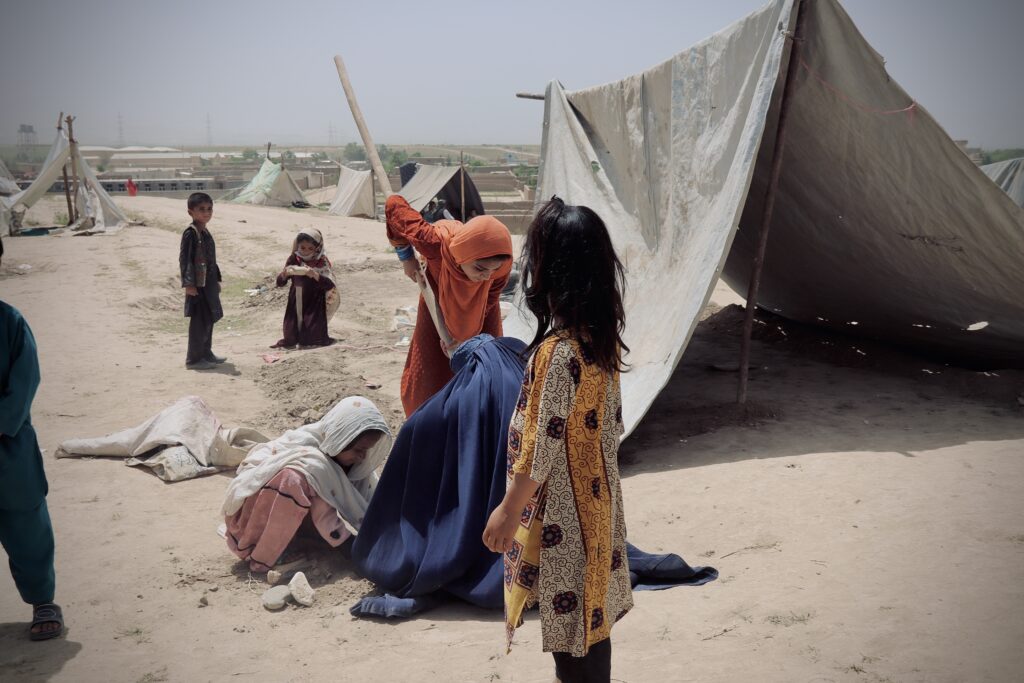
Near Fatima’s family, Nargis’s mother tried to set up a tent, but they also had to sleep on the ground without a mattress, blankets, or other equipment.
“There is nothing else. Someone helped us and gave us a tent to hide from the sun. Even we don’t have tonight’s food,” Nargis said.
A few weeks have passed since the recent floods in Baghlan, but families and children cannot access urgent aid. They urgently need shelters, clean water, and toilets.
“I can’t sleep. The ground is cold and won’t let me sleep. We are tired of this life,” said Nargis.
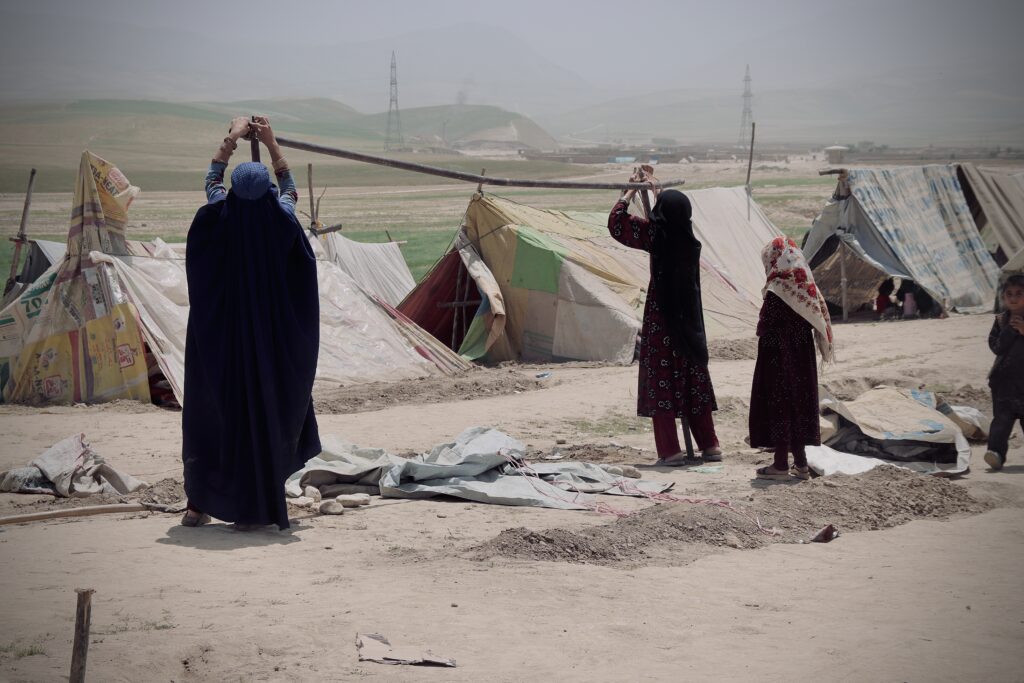
The World Food Program has already stated that the country is facing a food crisis, with one in three Afghans unsure where their next meal will come from.
The humanitarian crisis in Afghanistan has worsened since the Taliban took control. Job losses, lack of cash, and the ban on women working have led to a new class of hungry people.
According to the WFP, 15.8 million Afghans are not consuming enough food. The country is on the brink of economic collapse, with the local currency at an all-time low and food prices increasing.
After the recent flood, the WFP is concerned. The situation is expected to worsen in the upcoming months, significantly affecting the already critical levels of food insecurity.
